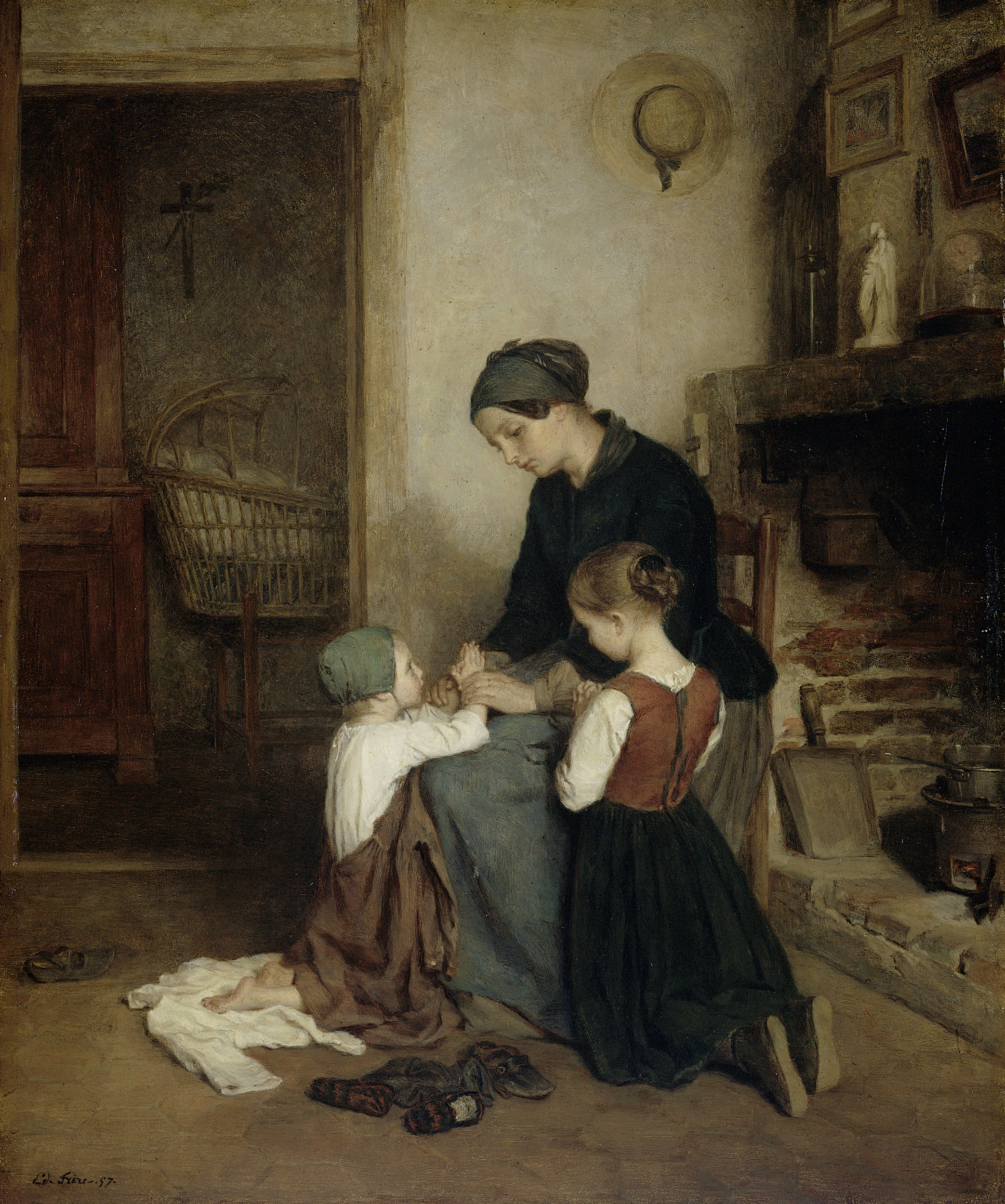It’s 8:00 a.m. and you are packing up for a seriously groovy adventure. I suppose you could say you are planning a sort of mature escape from the lovely humdrum of homemaking, or taking a day off to visit a literary amusement park in the midst of the daily grind of homeschooling. You are really looking forward to putting your feet up, forgetting about Biden’s latest executive (or did I mean executionist?) order, and ditching the angst you have been battling with ever since Pope Francis whipped out Traditionis Custodis. The books you pack in your bag hold within them pages upon pages of spectacular places to visit and stellar sights to see, not to mention a great excuse to spend hours of time just loving on your children.
So what exactly is this enchanted land you are planning to travel to? It is Read Aloud Land; a land of mystical wonders and bountiful joys; a world imbued with the breathtaking beauty, goodness, and grace of God. Voyaging through this land will inevitably lead you to grow in wisdom, light, and love, and doing so along with your children will bring them more blessings than you can possibly fathom.
Soon after my conjoined twin infant daughters died in 2013, I made a resolution: I was going to enjoy the living children I still had with me every day that I could and with all of my being. A wise mother who homeschooled her children for many years once told me, “One of the very best things you can ever do for your young children is just cuddle with them and read to them.” Taking her advice to heart, I decided to read to my children for about an hour almost every day. To carry out my resolution, I purchased a super nerdy watch—something I was even embarrassed for my own husband to see on me—so I could keep track of how much time I spent reading with my children each day.
Since then, I have been able to keep my resolution nearly every day—thanks to the homeschooling way of life. Time and time again, I have discovered that reading to my children softens my heart towards them and files down the rough edges of our family life. I have found that as we savor God’s gift of good literature together, we also savor His presence, His creative power, and His eternal wisdom. Book by book, hour upon hour, we become more and more like the kind of people that our Creator has fashioned us to be.
As Mem Fox writes in Reading Magic: Why Reading Aloud to Our Children Will Change Their Lives Forever:
Read-aloud sessions are times when parents and children fall in love with each other. Parents who read aloud regularly to their children get to know their kids well and dote on them more because the things little kids say and do during read-aloud are so funny and adorable. People who tell me they haven’t got time to read aloud every day for ten minutes make me choke. We have to make time. After all, it’s fun! It’s hilarious! It’s gorgeous!
What is it about reading aloud that makes it such an awesome experience, one that can give even the most academically and financially impoverished child a fighting chance in today’s crazy world, and the most spiritually famished young soul a glimpse of the beatific vision to come? And why do parents seem to know instinctively that reading to their children is one of the best things they could possibly do for them?
Thankfully, science has some convincing answers for us, answers which reveal to us that reading to our children is something born from an innate desire we have to bring them God’s love.
For example, in a study published in the August 2015 issue of Pedriatics magazine (a publication of the American Academy of Pediatrics), researchers looked at the brains of nineteen three- to five-year-olds using Magnetic Resonance Imaging (MRI). They scanned the children’s brains as they listened to recordings of a woman reading stories, as well as while they listened to background noise, to see how their brains responded when faced with various kinds of stimulation. The team also gathered information about how stimulating the children’s home reading environments were, such as how often they were read to and whether or not they were exposed to an enriching variety of books.
Conclusively, the MRIs revealed that children who came from more stimulating home reading environments had, in general, greater and more complex activity in the parts of the brain that help with narrative comprehension and visual imagery. Interestingly, their brains especially showed this type of activity while they listened to stories being read to them. The American Academy of Pediatrics (AAP) has long spoken about the importance of reading at home throughout infancy and early childhood, explaining how it can bolster language skills and encourage literacy development, and much more. “Parents who spend time reading to their children create nurturing relationships, which is important for a child’s cognitive, language and social-emotional development,” the AAP once reported.
Another intriguing body of research showed the positive effects that reading to preterm infants can have on their overall health and development—possibly even as a life-saving tool in the hands of parents. In the spring of 2017, Georgetown researchers finished a study which evaluated the effects of reading aloud on twenty premature babies born between twenty-six and thirty-four weeks gestation. The babies were monitored for ninety minutes with machines that measured aspects of their physiological state, such as heart rate, blood pressure, and breathing and oxygen levels. For various reasons, the parent’s voices needed to be recorded and played to the babies in their incubators through a special speaker. The parents read whatever reading material they felt comfortable reading to their baby. The findings were prodigious. In The Enchanted Hour: The Miraculous Power of Reading Aloud in the Age of Distraction, Meghan Cox Gurdon writes about the conversation she held with one of the doctors involved in the study:
“They just love listening to the parent’s voice,” Dr. Seo told me. “We’ve seen some amazing things.” One girl had been born at twenty-five weeks and had suffered complications, including bleeding on the brain. Two weeks later she was stable and snoozing when a nurse pressed a button and an incubator was filled with the sound of her mother’s voice. In an instant, the tiny girl shot to alertness and had begun groping around inside her incubator. The voice of her mother was not a bit of background noise. It was not a matter of indifference. The intonation reached her baby brain and, we can assume, set it sparkling in the sort of dramatic neural response the Montreal researchers had seen.[i]
This study also revealed further evidence that when a baby hears the voice of his mother, he physically relaxes and his overall health receives a boost of nourishment, a sort of “emotional vitamin,” if you will. Gurdon reports further:
The doctors and nurses at Georgetown noticed something else: the voice that excited the brain had the paradoxical effect of soothing the body. “We can see that during the duration of the reading you have fewer events, of changes in oxygen saturation—it’s much more stable, the breathing is much more stable, the heartbeat is much more stable,” Dr. Abubaker told me. “And it had a lasting effect for at least an hour after the reading.” He knows it lasted for an hour because that’s how long the monitors kept running. Had the tabulation been extended, it’s possible that the babies would have been seen to enjoy the calming effects much longer.[ii]
Conclusively, science shows us that reading to our children soothes them not only while we are reading to them but also for long afterwards. In short, it is one knock-down investment in their future. It helps us struggling parents to raise peaceful, holy, happy kids, which ultimately makes the milieau of our family life all the more lovely.
Reading morally uplifting and wholesome literature, quality non-fiction material, or spiritual masterpieces together can bond our family together in a way that almost nothing else can. When it becomes a time-honored family tradition, it can lift heavy hearts, give hope to the burdened, warm up the walls of our domestic churches, and even act as a sort of balm to heal broken family relationships.
Traveling to Read Aloud Land is simply a “must” on the map of family life.
[i] Meghan Cox Gurdon, The Enchanted Hour: The Miraculous Power of Reading Aloud in the Age of Distraction (New York: HaperCollins, 2019), p. 51.
[ii] Ibid.








